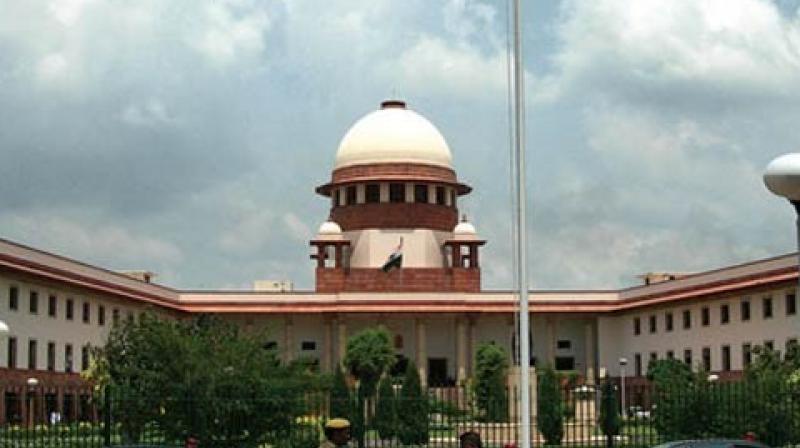Hadiya hearing posted to Mar 8 as father's lawyer brings up 'vulnerability' notion
The SC asked if the Kerala HC order annulling the marriage of Hadiya, an alleged victim of 'love jihad', was justified.

New Delhi: The Supreme Court on Thursday reiterated its question whether the Kerala High Court had the authority to annul the marriage between two consenting adults.
The apex court was hearing the case of alleged love jihad in Kerala.
"Can a roving inquiry could be ordered into the 'issue of consent' between two adults who married at will," a bench of Chief Justice Dipak Misra and Justices A M Khanwilkar and D Y Chandrachud asked.
It also asked if the Kerala High Court order annulling the marriage of Hadiya, an alleged victim of 'love jihad', was justified.
"Marriage and investigation are two different things. As far as marriage is concerned, it does not warrant any investigation. Investigation has nothing to do with it. You can investigate any other thing," the court said.
Senior advocate Shyam Divan, appearing for Hadiya's father, said it was a case of "vulnerable adults" and the high court was justified in nullifying the marriage by exercising its power under Article 226 of the Constitution.
Divan argued that Hadiya was a vulnerable adult, being under the influence of extremist organisations, and had thus married Shafin Jahan.
The apex court adjourned the matter for further hearing till March 8 following Divan's "vulnerability" notion.
Hadiya on Tuesday filed an affidavit seeking permission to remain as Shafin Jahan's wife. She also stated that she is a Muslim and wanted to remain as a Muslim.
Hadiya, a 24-year-old woman from Kerala made headlines after she married a Muslim man called Shafin, embraced Islam and changed her name.
In a recent verdict on the Kerala 'love jihad' case in January this year, the Supreme Court declared that an adult woman has the right to live freely and choose a life of her choice.
The Supreme Court said the NIA could continue with its probe into the alleged love jihad case of Kerala but it cannot investigate the marital status of the man and the woman.
(With inputs from PTI)

